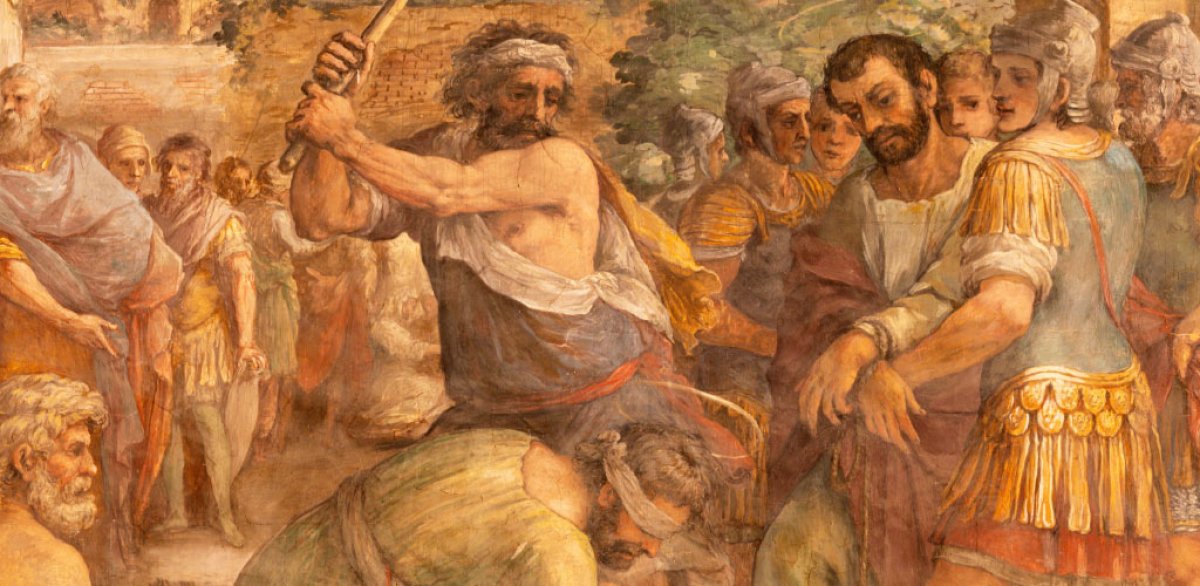As you look back over history, the people whom God has used to change the world have been men and women of great courage. Reading biographies of their lives or their own writings can inspire our courage and ignite our faith to accomplish great things for God.
The three men highlighted in this article exhibited unusual courage. May their courage challenge us to fulfill God’s calling on our lives, even when it is difficult and requires courage.
William Carey (1761–1834): Courage to Be the First to Go
Carey was a self-educated British shoemaker and a lay preacher whose heart God touched with the great need of the unevangelized around the world.
Incredibly, the churches of Carey’s day felt almost no concern over souls in other nations that had no gospel witness. As God burdened Carey’s heart for these souls, he preached about the Great Commission of Christ and the needs around the world to other ministers. He was told to sit down, be quiet, and let God take care of the heathen.
But Carey couldn’t sit down and be quiet. Instead, he had the courage to speak up and to write a book entitled An Enquiry into the Obligations of Christians to Use Means for the Conversion of the Heathens.
Not long after Carey’s book was published, he preached at a Baptist pastors’ fellowship from Isaiah 54:2–3 and pleaded with these pastors to take the responsibility of declaring the gospel to unsaved souls in foreign countries seriously. Included in his message was the quote he is remembered for still today: “Expect great things from God; attempt great things for God.” The following day, a new mission board was founded which became known as the Baptist Missionary Society. Carey was among the first missionaries to be sent by this board.
Carey is remembered today for his forty-one years in India, his tremendous impact on Bible translation (he translated the entire Bible into Bengali, Sanskrit, and Marathi and assisted in the translation of the Bible or portions of the Bible into forty other Indian languages), the foundry of Serampore College, and his impact combatting heathen practices such as widow burning and infanticide.
In the early years, Carey had the courage to continue despite going seven years without a convert. His wife Dorothy suffered a mental breakdown and lapsed into insanity. Carey also endured the tragedy of having his life’s work, including the handwritten manuscripts of his polyglot dictionary, two grammar books, and whole versions of the Bible, destroyed in a fire. Yet, he had the courage to begin again and replicate the work.
This man, remembered today as the Father of Modern Missions, exemplified continual courage to such an extent that his example continues to speak to us today.
Jim Elliot (1927–1956): Courage to Risk His Life
Jim Elliot will always be remembered for his statement, “He is no fool who gives what he cannot keep to gain that which he cannot lose.”
Elliot’s sacrifice for Christ is known and remembered today primarily due to the book, Through Gates of Splendor, that his widow, Elizabeth Elliot, wrote about him. Dr. Don Sisk once stated that this one missionary biography was responsible for over ten thousand missionaries being called to a foreign field.
Although going into any type of full-time service calls for courage, there is a special courage needed to bring the gospel to a people who would murder any outsiders with such a hatred that often led them to mutilate the bodies of their victims. Yet, Jim Elliott and his four co-laborers in this mission had that courage.
Elliot graduated from Wheaton College with plans of bringing the gospel to people who had never heard of Christ. He and his friend Pete Fleming travelled to Ecuador and began evangelistic work among the Quechua people. A year and a half later, he married Elisabeth.
In Ecuador, Elliot and Fleming were joined by three others (Ed McCully, Roger Youderian, and Nate Saint) as they began reaching out to the Huaorani people, known at the time as Auca. Although many believed that this tribe was unreachable due to their remoteness and their history of killing any outsiders, Jim Elliot and his friends knew they needed the gospel.
Over a series of months, the men dropped gifts from a plane and attempted to assure the Huaorani of their friendly intentions. In January of 1956, the five men landed and set up a camp some distance from the Huaorani village. After a friendly encounter with a few Huaorani men, the missionaries were encouraged. But their enthusiasm was short-lived.
On Sunday afternoon, January 8, 1956, ten Huaorani warriors surrounded the camp, and all five men were brutally speared to death.
Amazingly, the courage of these missionaries did not stop with the men. Two years later, Rachel Saint (sister to Nate) and Elisabeth Elliot made successful contact with the Huaorani. After moving into their village and sharing the gospel, many of the Huaorani—including some of the warriors who had killed the five missionaries—trusted Christ as Savior.
William Borden (1887–1913): Courage to Forsake Wealth
One of the most difficult areas to exhibit courage is in the area of finances. It takes great courage to walk away from wealth and comfort and to serve the Lord.
One man who showed this courage was William Borden.
Borden trusted Christ as a child. When he graduated from high school at age sixteen, his parents gave him a trip around the world. This trip opened Borden’s awareness to people who had never heard the gospel, and it awakened a desire to become a missionary.
Returning to the States, Borden enrolled in Yale University. But he didn’t wait until he graduated from college to begin sharing the gospel. During his time at Yale, he had the courage to be different and to be a difference maker. He made direct effort to witness to unsaved classmates and to begin Bible studies for all of the underclassmen at Yale. After his freshman year, he had 150 freshman meeting for weekly Bible studies. By his senior year, over 1,000 of Yale’s 1,300 students were meeting in Bible study groups that Borden had organized.
What many of Borden’s classmates did not know was that he was an heir to tremendous wealth. However, he gave away hundreds of thousands of dollars to a number of Christian organizations. He even refused to get a car for himself, as he thought it was an unnecessary luxury.
After graduating from Yale, Borden enrolled in Princeton Seminary. By this time, he was convinced that God would have him go as a missionary to the Muslim people of China. He signed the famous Princeton pledge that stated, “We declare ourselves willing and desirous, God permitting, to go to the unevangelized portions of the world.”
Borden began his missionary career by going to Cairo to learn Arabic. Once again, however, he did not put off soulwinning until his “real mission work” started. In Cairo, he rode a bike through the city, passed out gospel tracts, and used his growing skill in Arabic to share the gospel.
After just four months in Egypt, Borden contracted spinal meningitis and passed into eternity. Through his death, many young people in the United States and around the world were challenged for Christ. Many surrendered their lives to missions as a result of his courageous testimony.
Borden famously penned in his Bible these three phrases: 1. No reserves, 2. No retreat, 3. No regrets.
Isaiah 6:8 states, “Whom shall I send, and who will go for us?” Oh, that we, too, would have the courage to say, “Here am I; send me.”

